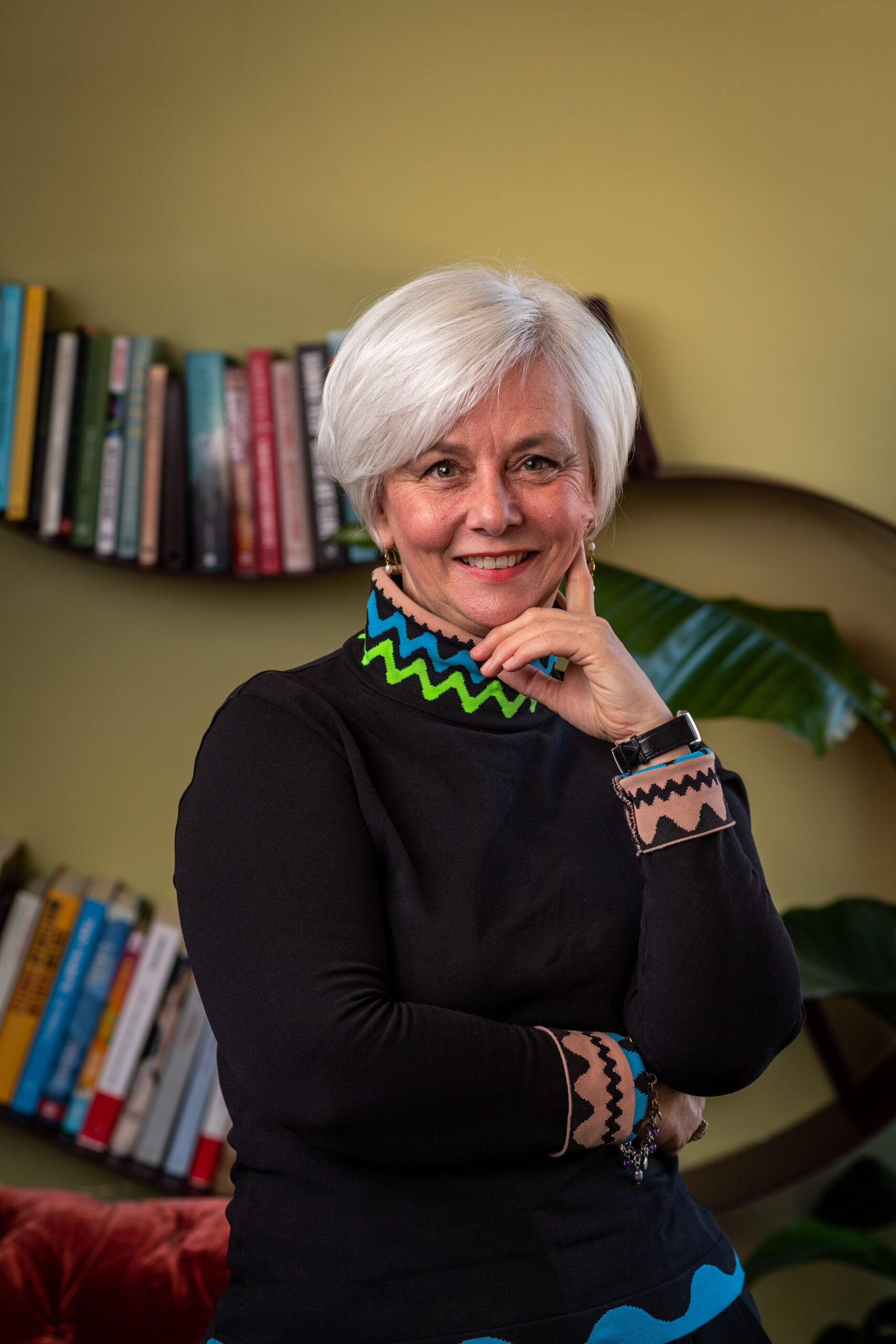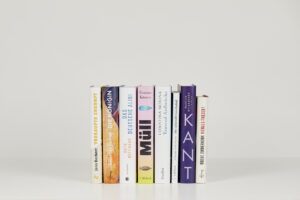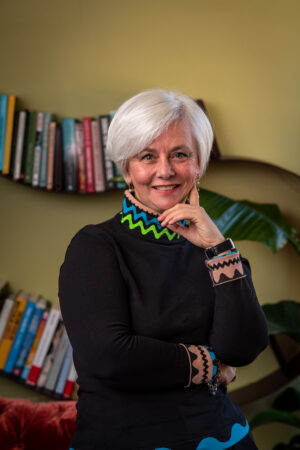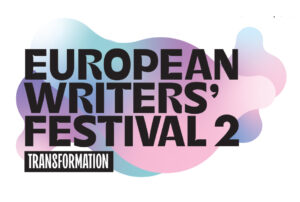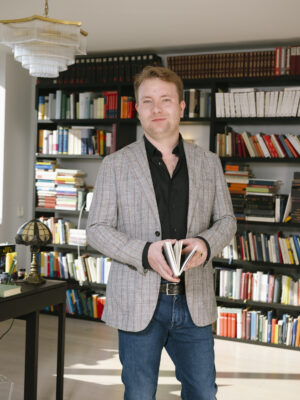Publisher Susie Nicklin speaks with Regan Mies about founding an independent press, the search for justice in contemporary fiction and forthcoming Indigo Press titles in translation.
Regan Mies: You had an expansive career in publishing before founding The Indigo Press in 2018, as a foreign rights specialist, the Director of English PEN and founder of its translation programme, the Director of Literature at the British Council, the owner of an award-winning bookshop and a literary festival producer and director. What spurred you to make the decision to start your own press?
Susie Nicklin: I always wanted to be a publisher. I was in awe of the impressive people I met when I started out as a translation rights agent – like Jordi Herralde of Anagrama, Jean-Claude Fasquelle of Grasset, Ivan Nabokov, Michael Krüger of Hanser, Beatrice Tusquets and Inge Feltrinelli of their eponymous houses, Morgan Entrekin of Grove Atlantic. They seemed so impossibly glamorous and insouciant, making a living from something subjective – the deployment of taste. Combined with excellent marketing and sales skills, these were the people I wanted to emulate, but none of them appeared to be weighed down a by a big family and associated bills as far as I could see, or at least, if so, it didn’t seem to interfere with their work much. I had to wait until my youngest child had left university before I felt confident enough to join them.
How do the knowledge and skills you gained at some of your previous roles inform your current role as a publisher?
Curating events including marketing tickets and selling them has been helpful; as has a lifetime of reading books and having opinions on them. My roles in the civil service and as a rights agent required excellent attention to detail and a huge number of stakeholders to cater for; running English PEN required sharp political and intellectual antennae; owning a bookshop and a literary agency forewarned me of the risks of being self-employed and of managing a business and people. But ultimately publishing is a manufacturing and sales job, and like all salespeople I have days when it feels Sisyphean and days when something amazing happens. My mistakes seem to loom much larger than my successes . . . you never forget the books that got away.
The Indigo Press publishes contemporary fiction and non-fiction ‘guided by a spirit of internationalism, feminism and social justice.’ I’d love to hear how you decide on what manuscripts you want to pursue and ultimately publish with The Indigo Press. Is there always an ‘aha’ moment while reading a manuscript you’re considering?
Yes, usually. It could be the language; it could be something funny, or clever, or astute; it could be a character or a theme. The more successful we become the more books we receive on submission and the higher the quality, so it’s a bit like climbing a mountain and seeing new vistas unfold at every rest stop. I have a strong sense of justice so often books about injustice or abuse feel necessary and important.
Do you have an ideal ‘Indigo Press reader’ in mind when acquiring and publishing titles?
Yes. Rather to my surprise – and this is not what I imagined when I started – she tends to be between about 25 and 45, interested in the world and in seeing her emotional interiority and political principles reflected back at her in a recognizable way. She has a sense of humour and cares about the environment and the wider world; she’s invested in her close relationships; she’s interesting, interested and curious. She may not in fact be a young woman; she could be any age or gender but she doesn’t read simply for relaxation or escapism, rather to imagine a better world and to challenge herself.
What does the process of discovering foreign language titles look like for you? Does that process change depending on the language?
It’s not really that dissimilar to acquiring English language books. People make recommendations based on their knowledge of my taste. I can read French so it’s easier for me to make unfiltered decisions on books from that language and/but knowing the cultural landscape of any country is a big bonus when considering submissions. For that reason my British Council work has been invaluable as I travelled widely and met thousands of people across a wide demographic range.
How, if at all, do you like to work with translators? Are you open to translators reaching out to The Indigo Press directly with pitches?
Yes. I have just acquired Mayfly Season by Matthias Jügler (PRH Germany) on the recommendation of translator Jo Heinrich; she guessed I would be intrigued by the author’s work on a little-known scandal of the GDR, the state abduction of healthy babies from unsuspecting parents who were told their children had died, only to learn decades later that they were in fact given to other couples to raise.
This June, you’ll be publishing Stephanie vor Schulte’s Boy with a Black Rooster, translated by Alexandra Roesch. The novel, which possesses elements of a dark fairy tale and takes place in a Cormac McCarthy-inspired post-apocalyptic landscape, was (like Mayfly Season) a New Books in German recommendation. What do you feel vor Schulte’s work brings to your list?
I love the elements of fairy tale and fantasy, and the ravaged landscape feels like a fictional version of our world wracked by war, disease and climate breakdown. There is humour and pathos as well as the good versus evil binary. And the structure is brilliant; the moment at which you realise why the initial shocking massacre took place is heartbreaking and breathtaking.
You’ve also recently acquired the rights to a German-language bestseller, Paradise Garden by Elena Fischer, which was nominated for the 2023 German Book Prize. Fischer’s coming-of-age debut tells the story of a 14-year-old who, after the death of her mother, sets out to find a father she’s never met. I couldn’t help but think of another debut, Pearl by Siân Hughes, which was an Indigo Press novel longlisted for the 2023 Booker Prize. In Pearl, a young girl’s mother goes missing, and she grapples with her father’s secrets. Do you often notice trends––thematic or stylistic––that connect books across your list? Are there make-or-break elements or characteristics you’re looking for in the books you publish?
I wouldn’t say that I actively look for them, but loss is a recurrent theme, as is abuse, climate breakdown, the search for justice – basically all fallout from the patriarchy.
Susie Nicklin, The Indigo Press
I wouldn’t say that I actively look for them, but loss is a recurrent theme, as is abuse, climate breakdown, the search for justice – basically all fallout from the patriarchy. I don’t tend to read for plot but for atmosphere and emotional verisimilitude. I haven’t lost a parent yet myself but it’s such an important event for those who have – a point of no return to one’s old life, so it’s the kind of departure which lends itself well to fiction. In 2024 I’m publishing two novels of male violence against women, one set in Switzerland and one in Brazil, and I’m constantly furious that this is a key theme in contemporary life. Simone Weil once said, ‘Pain and suffering are a kind of currency passed from hand to hand until they reach someone who receives them but does not pass them on’ and I suppose I’m interested in how and why people can’t refrain from passing them on.
I also wanted throw in a congratulations!––The Indigo Press was a regional finalist for Small Press of the Year at The British Book Awards 2024. As an independent press that’s been around for less than a decade, what do metrics of success look like for you?
Thanks! We love reviews in major newspapers, we love bloggers and bookstagrammers thoughtfully analysing our books, we love selling rights, we love our authors appearing at festivals and events and being nominated for prizes. But nothing is better than selling lots of copies of our titles.
Along those lines, what has been one of the most rewarding moments of founding and running an indie press, and what unexpected challenges have you encountered?
I have been touched by the trust that our authors place in us. And the fact that so many people are willing us to succeed, including my former colleagues in the world of independent bookshops. And being part, even in a small way, of that group I so wanted to join from my early twenties. I would say the most unexpected challenge is the lack of feedback; very few bad books get published in the UK nowadays, and at times it feels like an impossible dream to get people to read ours.
What would you say to readers to encourage them to seek out fiction and nonfiction published by small and independent presses?
I don’t think readers should notice the publisher. Otherwise the press becomes the brand, rather than the author. I remember asking friends a couple of years ago: ‘Who do you think publishes Sally Rooney?’ And not one guessed correctly. What I would say to readers is, find a bookseller whose opinions you trust. That is single best thing you can do to support indie presses because a good bookseller will curate their stock from a wide range of sources, doing the legwork for you, and it’s likely they will include books from small presses alongside the corporates.
Is there anything else you’d like to add?
NBG are doing fantastic work and I’m constantly impressed by team at the Goethe Institut, in London and elsewhere.
Susie Nicklin, The Indigo Press
NBG are doing fantastic work and I’m constantly impressed by team at the Goethe Institut, in London and elsewhere. I’ve been travelling a lot to Germany recently and I’m fascinated by this country which has changed so much since I first went to the Frankfurt Book Fair in 1987. Like everyone else I am deeply concerned about many aspects of its society, the rise of the far right, intolerance, not to mention the shocking performance of Deutsche Bahn. But, as someone who has always felt herself to be more French or Irish – ie Celtic – than English, I’ve learned to appreciate this complex country situated in the centre of Europe, mainly landlocked, with so many borders, and the profound seriousness with which many of its problems are being addressed. And the literature arising from this close inspection is increasingly impressive.
Thanks so much for sharing your time with us, Susie!
Photograph of Susie Nicklin by Fergus Burnett: fergusburnett.com
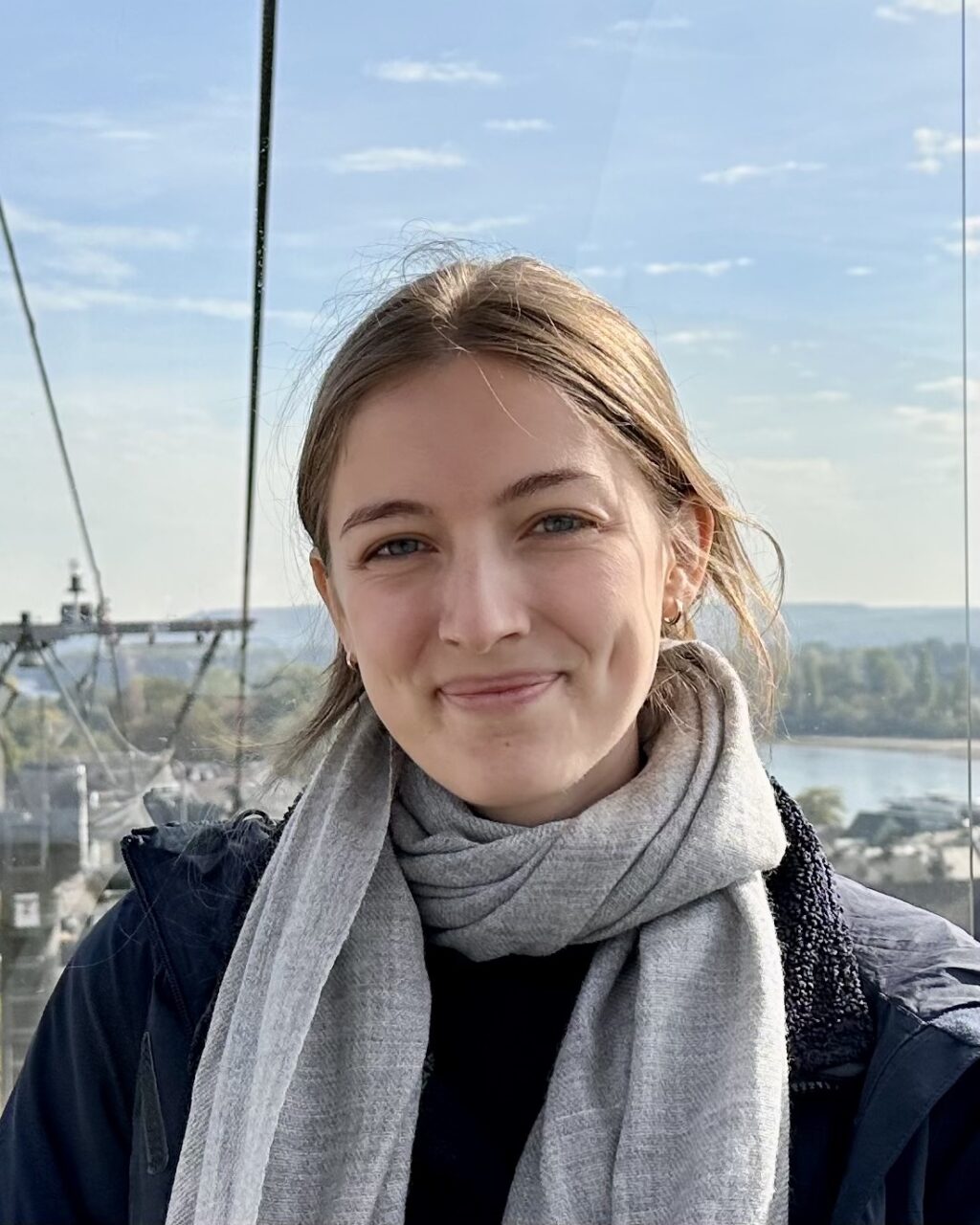
Regan Mies is an NBG intern for the spring 2024 selection round. After graduating from Columbia University, Regan worked as an editorial assistant in New York.
Regan is currently based in Hamburg, where she teaches English, writes, and translates with the support of a Fulbright grant.

